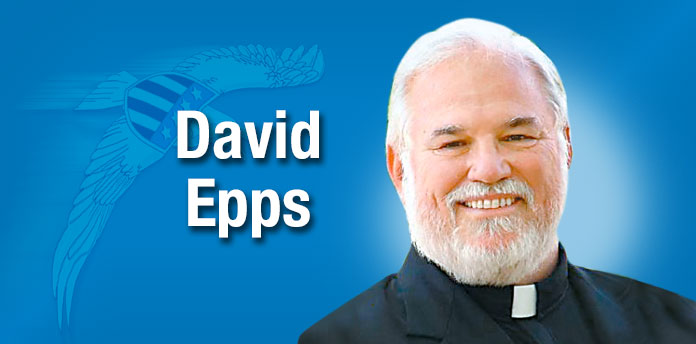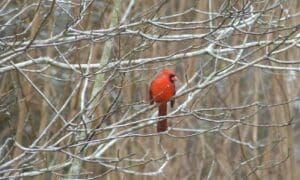I grew up on a gravel road in a working-class neighborhood, known as Hillcrest, in Kingsport, Tennessee. If you faced our house, there was a vacant lot that we called “the woods” on the left. Memorial Boulevard, also called the “Old Johnson City Highway,” was to the rear of our property and. on the right, resided the Bailey family.
The father, Taylor Bailey, worked at the Eastman Chemical Products Company, was a World War II veteran of the U.S. Army Air Corps, and a part-time Holiness preacher. His wife, Beatrice, was, I believe, a full-time mom and homemaker. In those days, they had three children. The youngest was Mitzi, the middle child was Timothy, and the eldest was Lonnie Earl, known simply as “Lonnie.”
Lonnie was two years older than me, and I thought he was the greatest guy in the world. For one thing, he was “cool.” Even as an early to mid-teenager, he rode a motorcycle (motor scooter, really, but that was close enough), sported a “ducktail” haircut, and was apparently the heart throb of almost every girl he met. He was a cross between a young Elvis and a young James Dean. That was my take anyway.
When the TV show “Happy Days” hit the airways, I couldn’t help but make the connection between Lonnie and Arthur Herbert Fonzarelli, better known as “Fonzie” or “The Fonz”, I’d like to say that I was the Richie Cunningham in that relationship, or even the Potsie, but they were both cooler than me at that stage of my life. Yet, for some unknown reason, he let me hang around with him from time to time.
Lonnie had a paper route and delivered newspapers on his bike. I climbed onto the back seat on numerous occasions and helped deliver the newspapers with him. He never offered to pay me, and I never thought to ask. It was enough to just be included.
I should add here that I was a gentle child in what could be a rough area. I didn’t know how to fight and took several beatings from boys who proved their manhood by bullying a younger kid. My father hired Lonnie to teach me to fight. Mostly that was putting on boxing gloves and getting pummeled on the car port until I finally got mad enough to swing back. I guess that Lonnie let it be known that I was his friend. That’s the only explanation I have for much of the cessation of neighborhood bullying.
When I entered 9th grade at Ross N. Robinson Junior High School, Lonnie was already a junior at Dobyns-Bennett High School. On the first day of class, I had my first fight. There were a few more before I didn’t have to fight anymore. Without the influence of Lonnie, the previous year, the eighth grade had been rough. I was now on my own and would be from then on.
I would still see Lonnie since, after all, we were next door neighbors. But he had school, and work, and girls — always girls. I had school and football and, yes, I had girlfriends. Even Richie had girlfriends.
Lonnie graduated and not long afterwards was drafted into the United States Army and was sent to Vietnam. There was a firefight and Lonnie was terribly wounded. Either a rocket or a grenade put him on the ground, and I was told he laid in a rice paddy for nine hours as helicopters struggled to evacuate the wounded. He spent months in a medical facility.
When he came home, I went to see him. He was changed. The ever-present smile had disappeared. The cockiness that had given him that Fonzie swagger was missing too. He was missing a large chuck of his calf muscle and there were other wounds, some physical and observable and some internal. At the age of 20 he looked like a much older man.
I noticed that a collection of medals was lying loose on a table in his bedroom. I picked them up and asked, “What do these mean?” He came over, snatched them out of my hand, threw them into a drawer, and said, “They don’t mean nothin.’” I never asked any more questions. He never volunteered any more information.
Lonnie served out his two years in the Army and was honorably discharged as a sergeant. A non-commissioned officer. A leader of men. Among his decorations was the Purple Heart for wounds suffered in combat with the enemy.
I graduated high school, went to college for a while, then dropped out and joined the Marine Corps. By the time I got out I was married with a child and re-enrolled at the university. Lonnie and I never had another conversation although we would wave a hand at each other in passing. I moved away from Kingsport by the time I turned 30 and Lonnie remained in his hometown.
Eventually, Lonnie moved out of his parent’s home, went to work, and lived his life. Lonnie, who I thought would never settle down, got married finally. He married Karen Davis on October 29. 1999 in Kingsport. Life went on. His life was not, as some lives were, a tragedy. Lonnie loved playing his guitar with local bands, was an avid University of Tennessee fan, and — no surprise here — loved riding his motorcycle. He also became a devoted father.
In 2022, Lonnie Earl Bailey died at the age of 73 and was buried in Johnson City, TN at Mountain Home National Cemetery. with full military honors. Although he probably never knew it, he became a role model for me in those youngish years. I finally even got a motorcycle of my own at the age of 58. I will never be anything close to the real Fonzie. But I did get to know him.
[David Epps is the Rector of the Cathedral of Christ the King (www.ctk.life). Worship services are on Sundays at 10:00 a.m. and on livestream at www.ctk.life. He is the bishop of the Diocese of the Mid-South (www.midsouthdiocese.life). He may be contacted at [email protected].]













Leave a Comment
You must be logged in to post a comment.